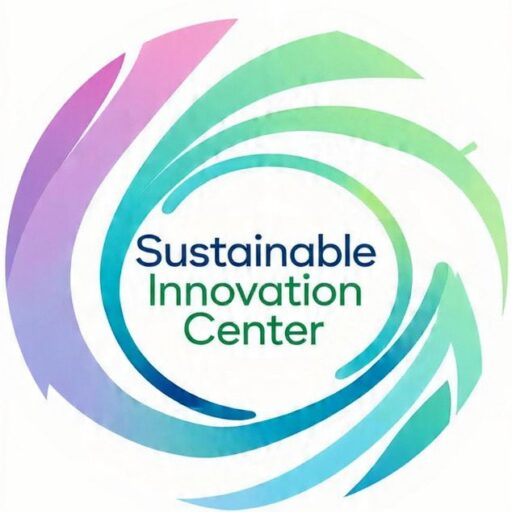A Story of Hope and Triumph: Restoring Dignity in Angiro Village
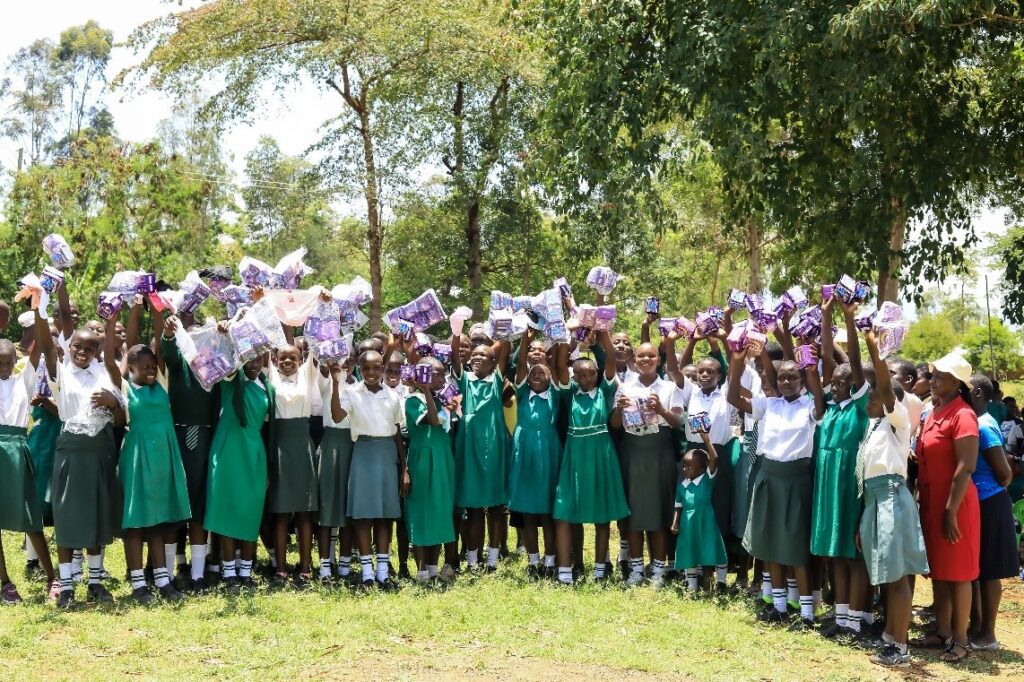
In the small village of Angiro, there lived a bright and talented young girl named Adhiambo From an early age, it was clear that she had a gift for athletics—fast on her feet, with a determination that outshone her peers. But when Adhiambo reached puberty, her dreams began to slip away.
Each month during her menstrual period, Adhiambo would be forced to miss school. With no access to proper sanitary products, she had no choice but to use an old, ragged blanket to manage her period. The discomfort and fear of leakage were constant, and the shame etched her classmates, especially some of the boys, would mock her. They gave her cruel nicknames and laughed at her in class, making the already painful experience even worse. Over time, the bullying chipped away at her confidence. She withdrew from activities, avoided speaking in class, and refused to take part in athletics—the one thing she once loved dearly.
Everything changed when an initiative was launched to provide free sanitary towels and undergarments to all girls in Angiro. For the first time, Adhiambo felt seen, respected, and dignified. With her confidence slowly returning, she rejoined the athletics team. Her talent, long buried under the weight of shame, began to shine once again on her face was unmistakable.
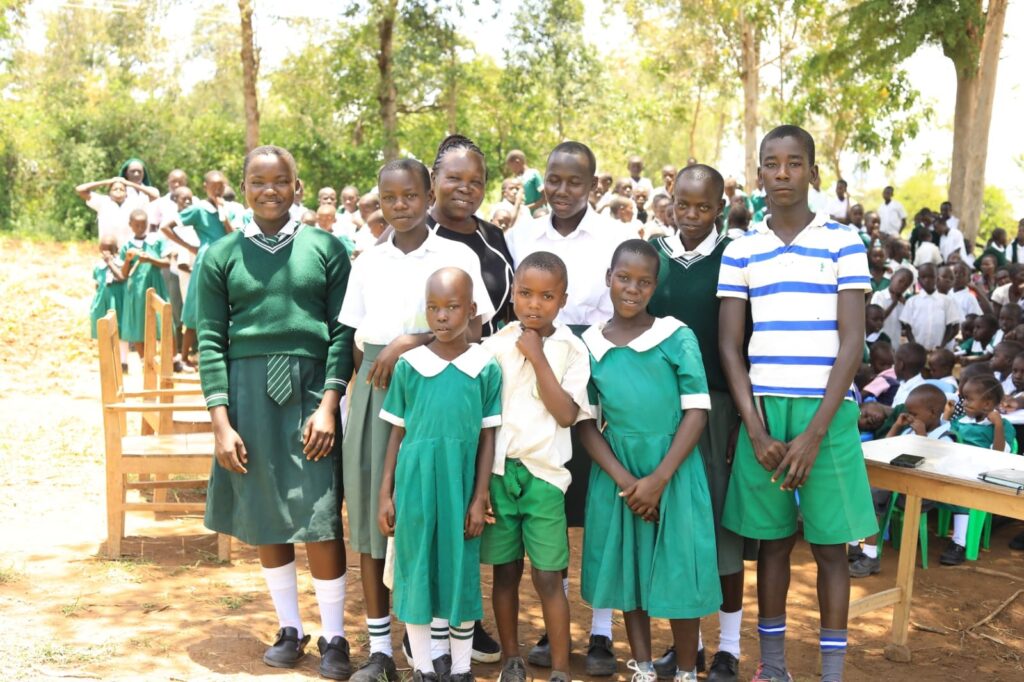
These are sports and academic champions at the county level from Angiro and Adhiambo is their captain (Back row, the third girl)
Adhiambo trained hard and, against all odds, went on to win local competitions. Her journey didn’t stop there—she advanced to the county-level sports and emerged as the number one athlete. Today, she stands proudly as the Games Captain of her school.
But perhaps even more inspiring than her medals is the way she now helps other girls overcome period shame. Adhiambo speaks openly about her experience, encourages her peers to stay in school, and shows them that menstruation is natural—not something to be ashamed of.
Her story is a powerful reminder that when we invest in girls’ dignity, we empower their dreams.
From Ghost School to Garden of Hope
The Permaculture Journey of Angiro Comprehensive School"
Just a few months ago, Angiro Comprehensive School in Rangwe Sub-County, Homa Bay County, stood like a forgotten shell—crumbling iron-sheet classrooms, empty desks, and silence where children’s laughter once echoed. In a region grappling with a high poverty index, most families barely scraped together one meal a day. Hunger weighed heavily on the community, and children, the most vulnerable, bore the heaviest burden. School enrollment had plummeted. Parents, forced to choose between survival and schooling, often kept their children at home.
Angiro Comprehensive had nearly faded into obscurity—a ghost school. But change came, not in the form of charity, but through seeds—of both plants and possibility.
Through the collaboration of Alliance for Sustainable and Livelihood Improvement Kenya (ASALI) and Buchenya Comprehensive School, a Permaculture project was introduced to Angiro. It began with the introduction of permaculture to students. The partners asked themselves a powerful question: What if the children could be taught on how to grow their own food both in school and at home? Can it help breach the food insecurity gap? Angiro permaculture school project was born
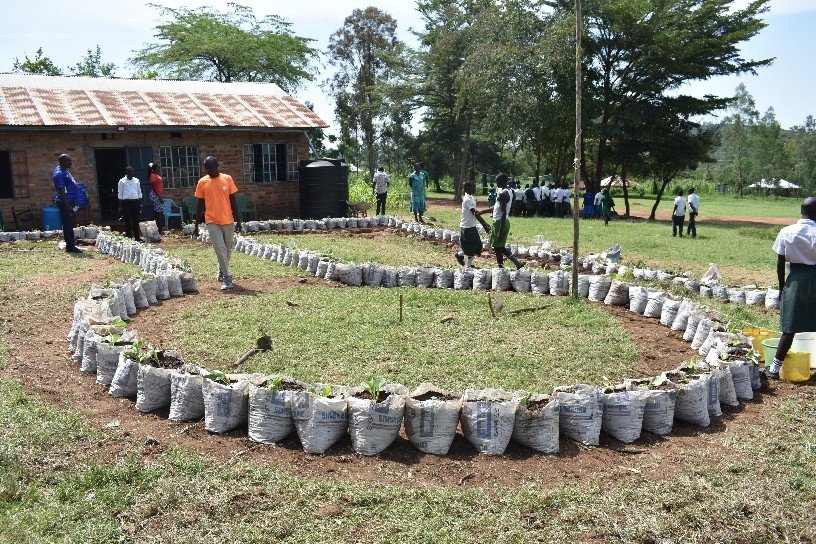
Permaculture was not just about planting vegetables; it was about planting dignity, knowledge, and hope. Children were taught how to use everyday materials—old sacks, plastic bottles, dry sticks, and manure—to build sack gardens. With their small hands and big dreams, they turned patches of dust into green oases.
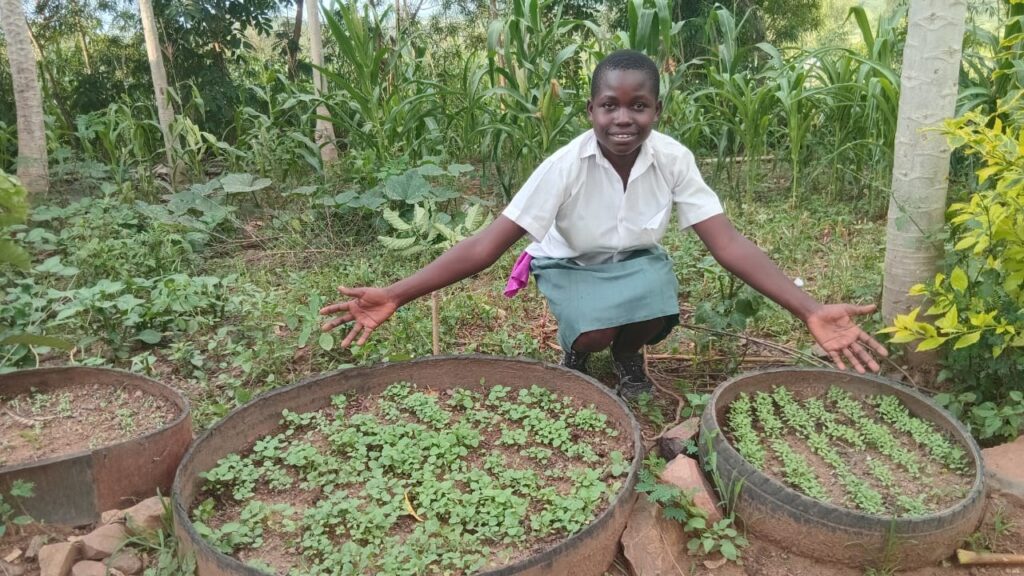

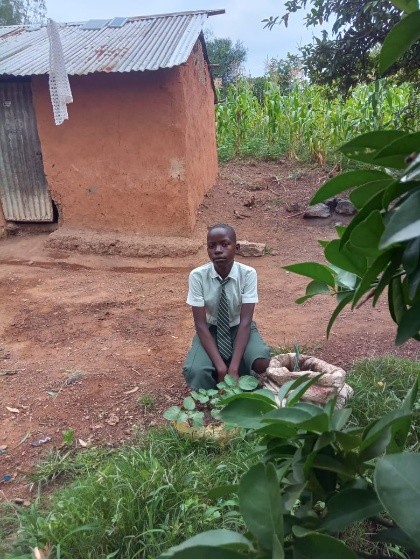

Permaculture is changing angiro village one home at a time
Permaculture had become more than a project. It was a movement of hope, powered by children who became catalysts of change in their homes and community. The soil beneath their feet gave back more than food—it gave them a future.
And so, Angiro Comprehensive School is no longer a ghost school. It is a garden of resilience, a living testament to what is possible when knowledge, nature, and community come together.
